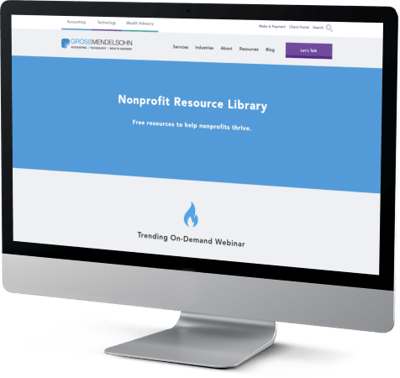Everyone starts somewhere, even nonprofit board members.
Serving on a board is not only gratifying, but it also gives you an opportunity to share and develop your expertise and skills to help an organization grow. As a board member, you will grow your professional network by making new contacts and building connections with new businesses and organizations.
1. Be Your Nonprofit’s Biggest Fan
One of the biggest and understated responsibilities of being a board member is being an advocate for your organization. That means you must be able to speak eloquently about your organization, its history, structure, goals and initiatives not only at fundraising events but anytime you are asked, whether it’s at your office, your child’s soccer game or in line for coffee.
Remember, as a board member, you serve as a representative of the nonprofit of which you serve on the board. Board members serve as a link between an organization and its members, stakeholders, constituents and clients, and you are responsible for educating influencers and the community about the importance of the organization’s work.
You will want to read documents such as annual reports, audited financial statements, brochures and articles about the organization. Even if you don’t understand every portion of these documents, make it your mission to have at least a basic understanding of what each document stands for. Even though you may not be an accountant, for example, it is still your responsibility to understand your organization’s finances.
2. Stay Cognizant of Conflicts of Interest
A board member must act in good faith and avoid conflicts of interest with the organization. You must disclose any conflict of interests immediately. For example, if you’re evaluating bids for renovations for a new building, it would be pertinent to disclose if your spouse was the owner of one of the companies being evaluated. If one is not already in place, consider proposing the implementation of a conflict of interest policy for board members to sign annually. And regardless of who you know, remember that as a board member, you are responsible for keeping confidential and sensitive information just that – confidential.
3. Be a Team Player
Be prepared to support the board’s final decision on something, regardless of whether you voted for or against a measure. There is a time and place to speak your mind and express an opinion, but once a decision is made, it becomes part of your responsibility as a board member to speak with a unified voice with the rest of the board. Casting doubt on the board’s decision after the fact will only undermine the authority of the board overall.
4. Don’t Take On Too Much At Once
Don’t spread yourself too thin by joining numerous boards. It is better to serve on one board as an exemplary board member than serve as an inactive member on three boards.
5. Ask Questions
Exceptional board members are not afraid to ask what may seem to some as simple, straightforward questions. A new board member might not be familiar with the organization’s history. Good board members are not afraid to ask naïve questions because they trust their own instincts and are always working to improve their knowledge of the organization.
6. Take It Seriously
Serving on a board is a big commitment of time and energy. Respect your position and fellow board members by coming to every board meeting prepared. Read any pre-circulated documents, including the prior meeting’s minutes, before the meeting and come prepared to participate. Regular attendance at board meetings is a must to be an effective board member.
7. But Have Fun Too
Above all else, good board members enjoy their role. They are passionate about the work of the organization and interested in learning more about the mission and the community served. Board meetings should not be seen as a chore, but a way to help board members connect with their peers and maintain enthusiasm for their role.
Serving On a Board Is a Lot of Responsibility
Being an effective and respected board member requires a lot of time and energy. To be a good nonprofit board member, you must be accountable for your duties and be willing and able to put in the time to honor the responsibilities required. For more information on board responsibilities, watch this free on-demand webinar.
Need Help?
Contact our Nonprofit Group online or call 800.899.4623.


